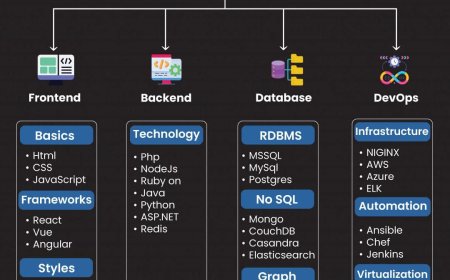How Does AI Agent Development Boost Customer Experience?
AI Agent Development is revolutionizing customer experience by introducing intelligent, autonomous systems that deliver faster, more personalized, and context-aware interactions.

In todays digital-first economy, customer experience (CX) has become the ultimate differentiator for businesses. With rising expectations for speed, personalization, and 24/7 service, traditional customer service methods are often too slow, rigid, or resource-intensive to keep up. This is where AI agent development is stepping in not just as a support tool, but as a transformative force reshaping how businesses engage with customers.
Unlike conventional chatbots or static automation scripts, AI agents are intelligent, autonomous systems capable of understanding context, making decisions, and proactively interacting with users across multiple channels. They bring a new level of efficiency, empathy, and engagement that elevates the customer experience to unprecedented heights.
In this blog, we explore how AI agent development enhances customer experience, the key benefits it delivers, and why its a must-have for businesses aiming to stay competitive in the age of intelligent automation.
What Is an AI Agent?
An AI agent is a software-based entity that perceives its environment, makes decisions, and takes actions to achieve specific goals. In the context of customer experience, these agents are built to:
-
Understand natural language queries
-
Interpret context and intent
-
Learn from interactions
-
Provide real-time support
-
Proactively engage customers
AI agent development involves designing, training, and deploying these agents with the goal of delivering autonomous, intelligent, and continuous assistance throughout the customer journey.
Why Customer Experience Needs a New Approach
Modern customers expect businesses to be:
-
Always available (24/7 service)
-
Highly responsive (minimal wait times)
-
Deeply personalized (context-aware interactions)
-
Omnichannel ready (support across chat, voice, email, apps)
Traditional customer service models often fall short because they rely heavily on human agents, static FAQs, or outdated chatbots that lack contextual understanding. This results in:
-
Long wait times
-
Repetitive responses
-
Frustrated customers
-
Missed opportunities for engagement
AI agents address these gaps directly by combining speed with intelligence and automation with empathy.
1. Instant, 24/7 Customer Support
AI agents provide round-the-clock availability without downtime or fatigue. Unlike human agents who work in shifts, AI agents are always ready to assist.
Real-World Impact:
-
Customers get answers instantly, even at odd hours.
-
Businesses maintain consistent support during peak times and global time zones.
-
Reduced support queue and wait times.
By ensuring uninterrupted service, AI agents drastically increase customer satisfaction and trust.
2. Personalized Interactions at Scale
AI agents analyze data such as browsing history, past purchases, support tickets, and behavior patterns to deliver contextual and personalized responses.
Example Use Cases:
-
Recommending products based on a customers shopping habits.
-
Addressing users by name and referencing their past interactions.
-
Adjusting tone and response style based on user mood and sentiment.
This level of personalization creates a feeling of human-like connection that traditional bots simply cant match.
3. Omnichannel Engagement
Customers today interact with brands across multiple platforms websites, mobile apps, social media, messaging apps, and voice assistants. AI agents ensure seamless support across all these channels.
Benefits:
-
Consistent customer experience regardless of channel
-
Synchronized conversations across devices
-
Reduced friction in the customer journey
Whether its a Facebook Messenger query or an in-app chat, AI agents deliver unified service experiences that build brand loyalty.
4. Proactive Customer Support
Traditional customer service is reactive customers must raise a ticket or reach out first. AI agents flip the script with proactive engagement.
How it works:
-
Monitoring behavior in real time (e.g., a stalled checkout process)
-
Noticing inactivity or confusion
-
Triggering helpful messages, offers, or tips before users ask
This anticipatory approach prevents frustration, reduces churn, and boosts conversions by addressing needs before they become issues.
5. Intelligent Routing and Escalation
While AI agents can handle a wide range of queries, some cases still require human intervention. In these situations, smart agents ensure smooth transitions by:
-
Escalating issues to the right human agent
-
Transferring all context and chat history
-
Suggesting next best actions to human reps
This ensures that customers never have to repeat themselves, and resolution is faster and more efficient.
6. Sentiment Analysis and Emotional Intelligence
Advanced AI agents can detect emotional cues in customer messages using natural language processing and sentiment analysis. They identify whether a user is angry, confused, or satisfied and adjust their responses accordingly.
Result:
-
Calmer conversations with angry customers
-
Empathetic tone during sensitive queries
-
Improved overall interaction quality
By bringing emotional intelligence into digital conversations, AI agents create more human-like, empathetic support.
7. Continuous Learning and Improvement
AI agents dont remain static. They continuously learn from:
-
Previous interactions
-
Customer feedback
-
New training data
This self-improvement loop means the more they interact, the better they get. Over time, AI agents become experts in understanding customer preferences, behaviors, and needs.
Advantage:
-
Ongoing enhancement of service quality
-
Reduction in recurring issues
-
Adaptation to new products, services, or policies
Unlike traditional customer service systems, AI agents become smarter and more efficient every day.
8. Boosting Human Agent Productivity
AI agents dont replace human agents they augment them. While AI agents handle repetitive or low-complexity queries, human agents can focus on more complex, strategic, and emotionally sensitive tasks.
Benefits:
-
Reduced burnout for human support teams
-
Faster ticket resolution
-
Increased employee satisfaction
This human-AI collaboration improves both customer experience and internal support team performance.
9. Data-Driven Customer Insights
Every interaction with an AI agent generates valuable data. Businesses can use this information to:
-
Identify common customer pain points
-
Improve product offerings
-
Personalize future marketing campaigns
-
Spot trends and anticipate demand
AI agents thus become a source of strategic customer intelligencehelping companies deliver smarter, more relevant experiences.
10. Cost Efficiency Without Compromising Service
Providing high-quality customer service at scale is expensive when relying solely on human agents. AI agents drastically reduce costs while maintaining or even enhancing service levels.
Financial Benefits:
-
Fewer human support agents required
-
Lower overhead costs (training, hiring, infrastructure)
-
Increased first-contact resolution rates
Businesses can scale their customer support effortlessly without inflating their budget.
Real-World Examples
1. Klarna
Klarna uses AI agents to manage more than 2/3 of its customer support queries in 35 languages reducing response times and improving satisfaction at scale.
2. Amazon
Amazons Alexa and in-app support agents offer customers intelligent product guidance, order tracking, and issue resolution with minimal human intervention.
3. Bank of America Erica
Erica is an AI-powered virtual banking assistant that helps millions of customers manage finances, monitor transactions, and get personalized financial advice.
These businesses prove that AI agents are not just nice-to-have theyre essential to delivering exceptional, modern customer experiences.
The Future of Customer Experience with AI Agents
As AI agent development continues to evolve, expect even more breakthroughs in customer experience:
-
Voice-first interactions that feel natural and intuitive
-
Emotionally intelligent agents capable of responding to facial expressions or vocal tone
-
Hyper-personalization using real-time data and predictive modeling
-
Unified AI ecosystems across sales, service, and marketing departments
The future of CX will be autonomous, intelligent, and deeply personal and AI agents will be at the heart of it.
Final Thoughts
Customer experience is no longer just a service metric its a strategic business driver. Brands that consistently deliver fast, relevant, and satisfying experiences build loyalty, increase revenue, and stand out in a crowded market.
AI agent development is a powerful catalyst for this transformation. By enabling smarter interactions, faster resolutions, and personalized engagement, AI agents turn everyday customer touchpoints into exceptional experiences.
























